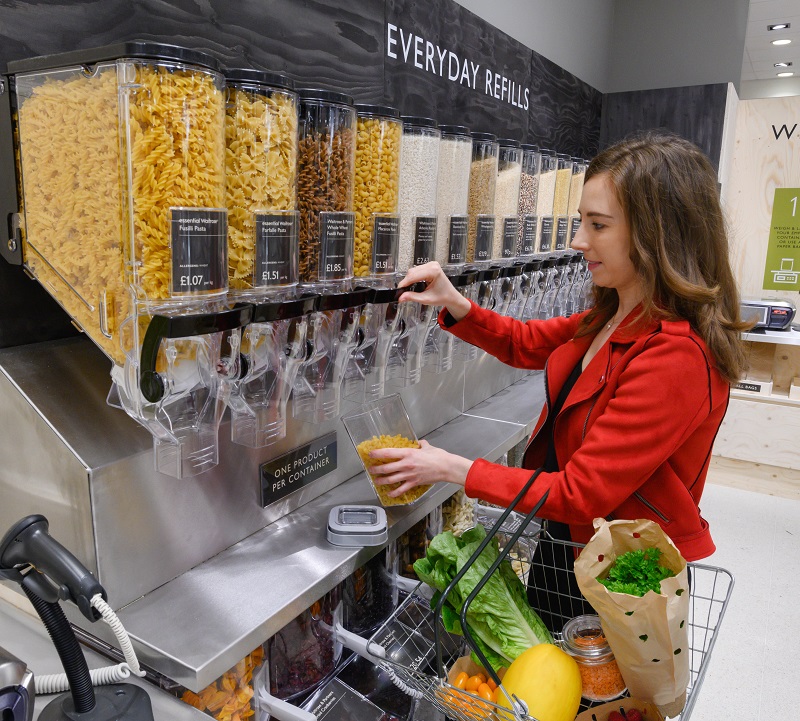Suez commissioned waste research consultancy Beasley Associates to produce a report, The Stuff of Life, setting out a roadmap to address “the issues caused by consumerism”, outlining interventions for businesses and the public sector.
Within the report, Suez urged the government to implement policies promoting refills and reuse, describing them as an “integral step” to minimising waste. The company used the example of schemes already operating “successfully” in supermarkets across Europe, in France, Spain and Austria.
It also suggested an extension of the single use plastic ban to other single use items, such as wrapping on fruit and vegetables, in addition to the existing ban on plastic straws, stirrers and cotton buds.
And, businesses were called on to review their business models to reduce “unnecessary over-consumption”, such as ‘mainstreaming’ alternative services including subscription and rental options to reduce fast fashion.
‘Collective effort’
Commenting on the report, John Scanlon, chief executive of Suez, said: “We need to make a collective effort if we are to effectively make a difference. It is not just the responsibility of the consumer, action from governments around the world is needed to ensure consumption-based emissions are included within climate targets.”

He added that “significant responsibility” also lies with businesses when it comes to this growing issue. “They need to step up and update their models to reduce unnecessary consumption and waste.”
The report listed other steps to reduce over-consumption, such as providing fiscal incentives to encourage reuse, repair and renovation, setting targets for the percentage of reuse required and providing policy support to address high start-up costs.
Also included were working with licencing, trading standards and environmental health teams to identify barriers to reuse and refill schemes and removing the best before dates on “appropriate” items to reduce food waste.
Behaviour change
According to the report, between 60 to 80% of “impacts on the planet” come from household consumption. It also states the UK’s production and consumption has made it the fifth-largest contributor to greenhouse gas emissions in the world.
Generation Z – those born between 1997 and 2012 – is emerging as the largest consumer group by size, the report says, representing 40% of all global consumers. Gen Z are willing to buy products and services via social media and are more “impulsive” spenders than millennials, the report says.
However, it also claims they are adopting more sustainable behaviours than any other demographic.
Coupled with a shift from in-person to online purchasing behaviour after Covid-19, which facilitated a permanent shift in behaviour due to ease and convenience, the report also mentions an emergence of sharing platforms and online marketplaces for resale of second-hand goods, which is, however, “still minimal compared to mainstream consumption”.
The document concludes: “We know changing behaviours can be tough but a combination of information, incentives and enabling policy should help to create a systemic change in consumption-related behaviour.”
Related links
SUEZ’s ‘The Stuff Of Life’ report










Subscribe for free